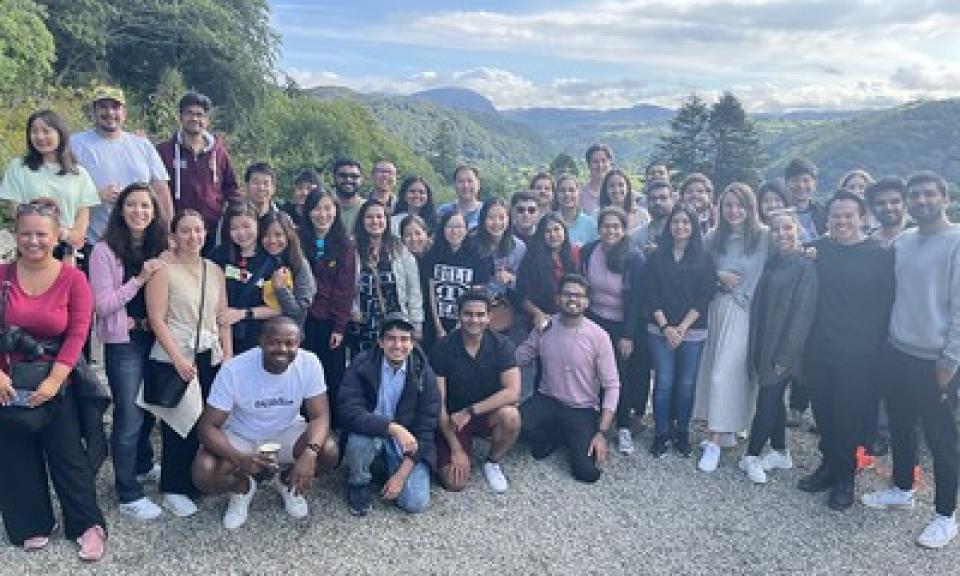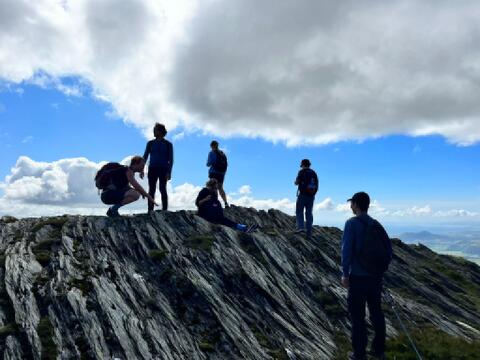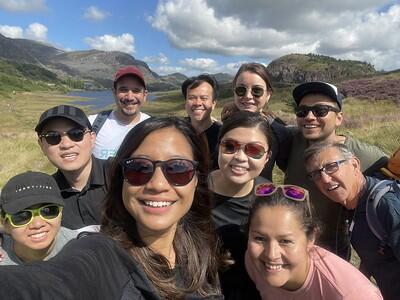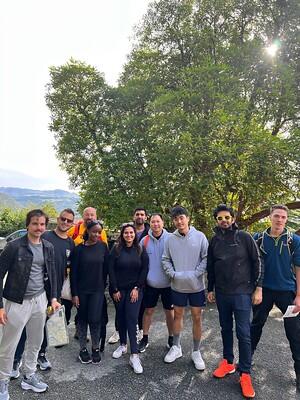Published
Blog type
We spoke to Celia Moore, a Professor of Organisational Behaviour and Director of the Centre for Responsible Leadership at Imperial Business School. She tells us what students can expect from the LEADS module within Imperial’s Full-Time MBA.
“Our aim is to help benefit future generations and develop competent and responsible leaders in society. We want all our students to care about the long-term health of society and the wellbeing of those they serve.”
The LEADS module (Leadership, Ethics, Awareness, Diversity, Society) starts from the very first month of the Full-Time MBA and runs throughout the duration of the programme. It is an immersive module that allows students to appreciate the fundamentals of modern business leadership and the factors that influence one’s ability to make effective, ethically reasoned decisions. Our students consider what qualities are representative of a good leader, while deliberating ethics, their values and resilience.
The Imperial MBA adopts a unique approach to teaching this module. For example, as part of the programme, students are tasked with reading a fiction novel. This is viewed as a perspective-taking exercise; reading a fiction book transports us to the lives of other people and allows us to understand and share the feelings of multiple different characters. This is a way of decentering ourselves, temporarily forgetting the ego and gaining greater empathy for the lives of others.
“Studies, including my own data collected from former MBA students, have shown that reading literary fiction dampens one sense of self-important, and increases one’s focus on and ability to empathise with others, key orientations of the leaders we are trying to develop at Imperial Business. Reading allows us to imagine what it’s like to be in other people’s shoes and compare their responses to ourselves; we consider their goals against our own.”
Another unique aspect of the module is making students more self-aware and attentive to their surroundings. As part of their learning, our students are tasked to go without their mobile phones for an hour at the local V&A museum - something that many view as challenging initially. But quickly, the students realise how much more they think and notice as a result.
For example, at galleries, on average people spend 30 seconds looking at a painting. However, when students are given the time to pay close attention to a painting without a phone, they notice themselves questioning more deeply – such as considering how the artist felt as they painted this, how long it took, why they chose to paint it and so forth. This highlighted the benefits of becoming a perceptive and attentive business leader; if you can notice and comprehend changes in a situation, you can understand the problem and solution more thoroughly.
“To be a good leader, it is important to consider others and appreciate their feelings.”
As part of this module, students attend a trip away - last year they went to a National Park, Wales. This park is vast, comprising misty, forested mountains and beautiful countryside; it is an environment that is very different to a classroom and students walked 25km across the park. This trip provides students with the opportunity and time to reflect on themselves and with each other, in a very different environment to what they are used to, with greater clarity. Many students come away from this experience, feeling like a changed person.
The aim of this LEADS module is to help students determine who they want to be as a leader, what type of leader they want to become and how they will maintain this going forward.
“Leadership can be very challenging, therefore learning to do it right, well and responsibly is integral.”
LEADS Capstone
Learnings from the LEADS module culminate in the LEADS capstone; students attend a trip away and this off-campus excursion allows students to fully consider their learnings - last year students went to a National Park in Wales. This park is vast, comprising misty, forested mountains and beautiful countryside; it is an environment that is very different to a classroom and students walked 25km across the park. This trip provides students with the opportunity and time to reflect on themselves and with each other, in a very different environment to what they are used to, with greater clarity. This experiential assessment challenges students to look back on their progress throughout the year and assess whether they've met their objectives, how these might change going forward, and what their future as a well-developed leader might look like. Many students come away from this experience, feeling like a changed person.
The aim of this LEADS module is to help students determine who they want to be as a leader, what type of leader they want to become and how they will maintain this going forward.
“Leadership can be very challenging, therefore learning to do it right, well and responsibly is integral.”
Kim Glajchen, Full-Time MBA 2022-23 student shares his experience:
How did the Capstone experience complete your MBA? What did it allow you to experience that helped launch you in your new professional endeavours?
On day 1 of Capstone, the facilitators spoke to the cohort about liminal experiences in life. These are categorised as experiences we undergo when we are transitioning between two different phases of life. Often, these are presented to us in the form of a traditional or ritualistic rite of passage. Capstone became this memorable and essential liminal experience for me.
What surprised you about the module?
Given the fast paced nature of the one year Full-Time MBA programme, it felt good to be given the opportunity to take stock of the year and reflect on the multiple friendships made, lessons learned and developmental insights acquired over the journey. This was especially appreciated given the fact that the cohort had been mostly separated throughout the duration of the elective term.
What does hiking in the outdoors have to do with leadership development?
Each student was allowed to choose their own adventure in order to derive as much out of the trip as possible. Personally, this is precisely the ending to the year I was looking for as it provided the space for a deliberate reflective journey, which coupled with the beautiful and inspiring surroundings, helped provide some opportunities for closure and self-actualisation.





